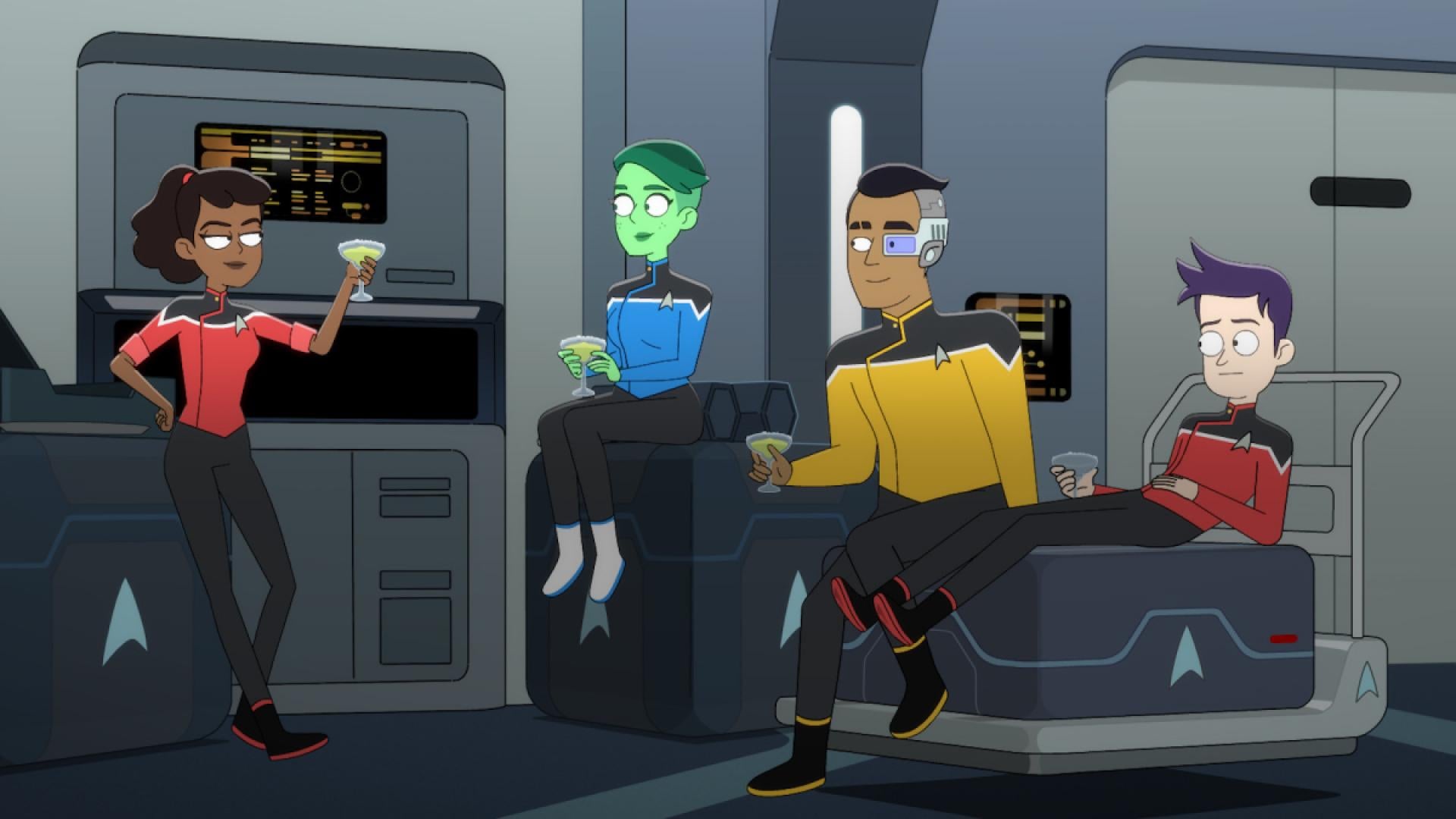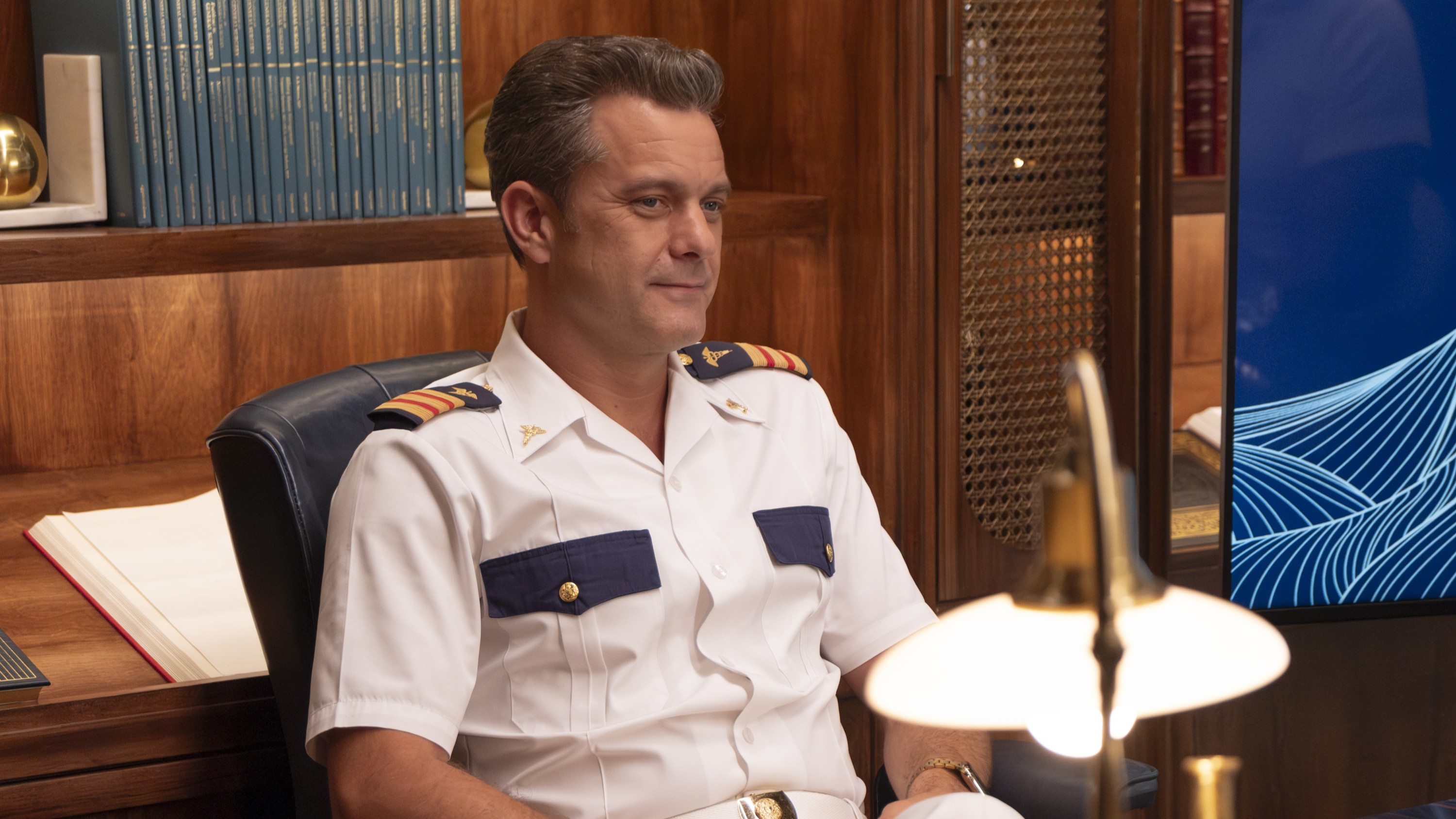What to Watch Verdict
Star Trek: Lower Decks feels like a return to form for Star Trek, but maybe not how you were expecting.
Pros
- +
🚀 Episodic plot structure!
- +
🚀 Instantly likable cast
- +
🚀 Very funny
Cons
- -
🚀 Not every joke lands
- -
🚀 Some characters still need to establish their identity
Star Trek just hasn’t been the same since making the warp-speed jump in the modern age of streaming. Where Trek used to thrive was in episodic adventures with a cast of Starfleet officers whom we would come to know and love over the course of those high-concept escapades. However, due to a combination of influence from the J.J. Abrams-produced film trilogy and the binge-friendly serialized storytelling demands of producing for a streaming service, Star Trek: Discovery and Star Trek: Picard are lacking as much more than passable nostalgia-driven brand management exercises. They aren’t awful (mostly), but they certainly fail to understand that the core of Star Trek doesn’t exist as a venue for prolonged action setpieces and Mystery Box narrative arcs.
This is why Star Trek: Lower Decks feels like such a breath of fresh air for the longtime Trekkie. At first glance converting Star Trek into an animated comedy seems like a sort of stylistic sacrilege, particularly because the previous attempt to bring Trek to animation in 1973 was more unintentionally hilarious than anything. However, the animated sitcom is one of the few popular avenues in which proper episodic storytelling still thrives, so it’s a prime way to smuggle the familial feeling of The Next Generation and Voyager into a format that can find popularity with modern audiences.
The main comedic conceit of Lower Decks is that, rather than center the narrative on the bridge with the captain and a selection of named officers, instead our heroes are the ensigns the franchise has famously used as plot fodder in the previous series in order to show just how high the stakes are. It’s a clever idea that simultaneously allows the show to poke fun at the reverence placed on Starfleet officers in-universe, while still paying faithful, if still irreverent, homage to the iconography of previous Treks. This includes stylistic choices like title cards reminiscent of TNG, or canonically confirming that a ship’s holodeck is used for some more adult activities than dueling wits with Moriarty.
Our two main characters are Ensigns Mariner (Tawny Newsome) and Boimler (Jack Quaid), extreme foils in their dedication to Starfleet and their desire to climb in the ranks. Boimler is career-oriented and a stickler for the rules, driven by a desire to one day become a captain. Mariner, meanwhile, has a nerdy reverence for the history and traditions of Starfleet, but she couldn’t give two shits about protocol or rank, preferring instead to get demoted at every opportunity and have fun on as many wacky adventures as possible. The obvious point of reference for this dynamic is the first season of Rick and Morty – the first episode bears some striking structural similarities to Rick and Morty’s pilot – but the character dynamic works well within the relatively more constrained setting of a Starfleet vessel.
Rounding out the main cast are Ensigns Rutherford (Eugene Cordero) and Tendi (Noël Wells), who are primarily developed during episode B-plots throughout the first four episodes and are therefore less firmly defined. Rutherford is an engineer in love with his job and possibly with Tendi, while Tendi herself feels like she was introduced to be a fish-out-of-water character assigned to the medical bay, but the show can’t even commit to her outsider status beyond her introduction. These characters find their way into their own absurd misadventures that make them instantly loveable, but they feel just amorphous enough that their niches within the show aren’t explicitly defined yet. That’s not at all unusual, particularly as Star Trek is concerned, so I’m confident that they’ll find more definitive roles by the season’s conclusion.
The comedy itself takes even further cues from Rick and Morty, relying on fast-witted banter, high-paced cartoon action, alien absurdism, and good old-fashioned character conflict to fuel laughter. Not every joke is a gut-buster, particularly in early episodes where the writing reaches for some very low-hanging fruit, but it’s usually more amusing than not, and there are moments of pure inspired comic gold that are simply waiting to be discovered. (The fourth episode in particular has a gag that made me pause the episode because I was laughing so hard.)
What’s most remarkable of Star Trek: Lower Decks, though, is how committed it is to deliver on the promise of a Star Trek show that recalls the structure and pacing of the franchise in its prime. Every episode is a self-contained narrative with character arcs that build upon previous episodes while emphasizing the particular absurd situation of the week. It’s refreshing to see Star Trek embrace that sense of adventure and love for its own characters again, even if it has to be delivered with self-referential cynicism. Hopefully, the other Star Trek shows take note that this kind of storytelling isn’t dead and can revive the format that allowed Star Trek to thrive in the first place.
Star Trek: Lower Decks is available to stream now on Paramount Plus in the US and on Prime Video in the UK.
Leigh Monson has been a professional film critic and writer for six years, with bylines at Birth.Movies.Death., SlashFilm and Polygon. Attorney by day, cinephile by night and delicious snack by mid-afternoon, Leigh loves queer cinema and deconstructing genre tropes. If you like insights into recent films and love stupid puns, you can follow them on Twitter.












